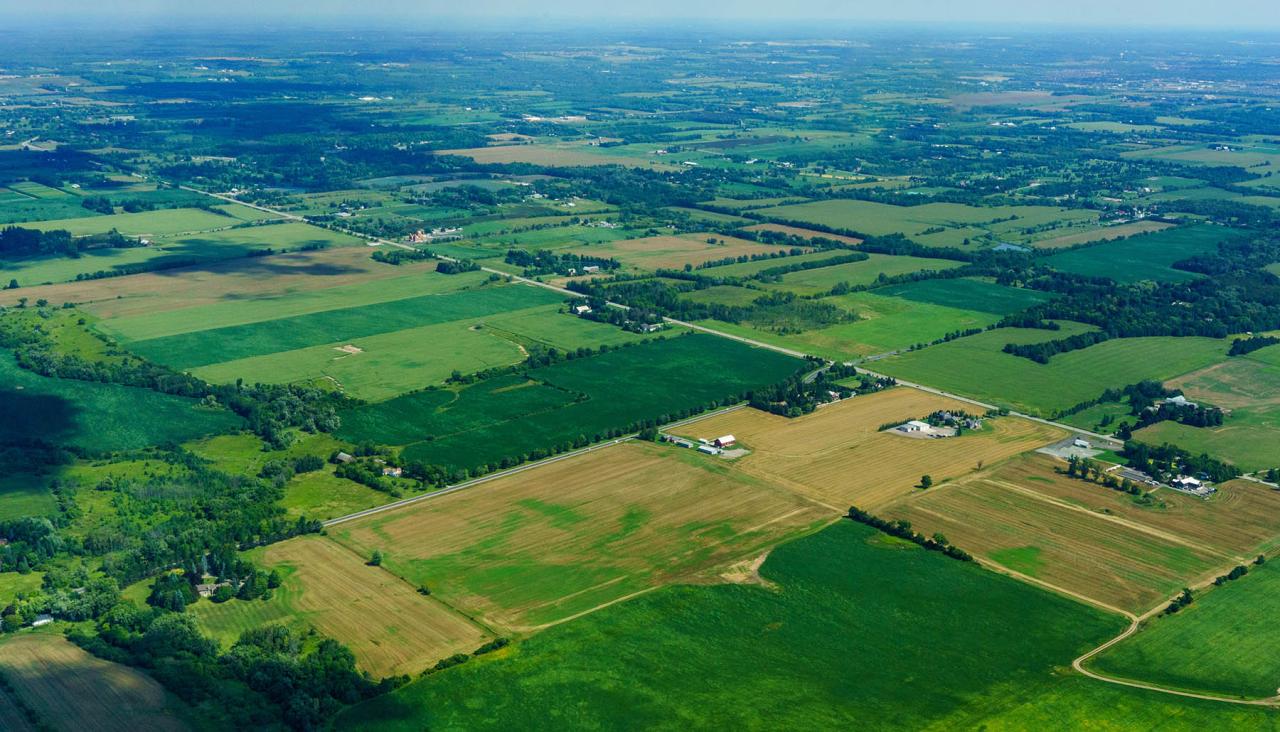Instagram, blessures, poursuites et agrotourisme : l’Ontario légifère – this translates to “Instagram, injuries, lawsuits, and agritourism: Ontario legislates.” This means Ontario is cracking down on safety and liability issues within its booming agritourism sector, spurred in part by the increasing use of Instagram to market these businesses. We’ll explore how Instagram’s visual storytelling impacts customer engagement, the legal risks involved, and how Ontario’s laws are adapting to this evolving landscape.
We’ll also look at real-world (hypothetical) examples of how Instagram posts can become evidence in legal cases.
Ontario’s new laws targeting Instagram’s impact on agri-tourism, focusing on injury claims and lawsuits, highlight the complexities of online influence. This makes you think about the fragility of life, as tragically illustrated by the news that Boxer Paul Bamba dies aged 35… just six days after his final fight. The legislation aims to protect both businesses and consumers in the digital age, underscoring the need for responsible online engagement.
This exploration will cover the potential liabilities faced by Ontario agritourism operators, common accident causes, recommended insurance, and preventative measures. We’ll delve into relevant Ontario legislation, comparing the responsibilities of different agritourism types (like pick-your-own farms versus guided tours). We’ll analyze hypothetical case studies, demonstrating how Instagram content can impact legal outcomes, and finally, we’ll Artikel future trends and best practices for safe and successful agritourism businesses in Ontario.
Instagram, Injuries, and Agritourism in Ontario: A Legal Landscape: Instagram, Blessures, Poursuites Et Agrotourisme : L’Ontario Légifère

Ontario’s agritourism sector is booming, with farms and agri-tourism businesses increasingly relying on Instagram to connect with customers. However, this rise in popularity brings new challenges, particularly concerning legal liabilities and safety regulations. This article explores the interplay between Instagram marketing, potential legal risks, and relevant Ontario legislation within the agritourism industry.
Instagram’s Role in Ontario Agritourism

Instagram has become a vital marketing tool for Ontario agritourism businesses. It allows them to showcase their offerings visually, engaging potential customers through high-quality images and videos.
Ontario’s new laws tackling Instagram influencers, injuries, lawsuits, and agritourism are pretty intense, right? It makes you think about the high-stakes drama in other areas, like the upcoming season of Squid Game Will Return and Conclude With an Epic Season 4 , which promises even more intense consequences. So, while Ontario cleans up its act, get ready for another round of high-stakes action in the world of streaming! Hopefully, the new laws will prevent real-life “Squid Game” scenarios on farms.
- Current Use: Many Ontario farms and agri-tourism operations utilize Instagram to share photos and videos of their products, activities, and the farm environment. This includes showcasing seasonal produce, farm animals, events, and beautiful landscapes.
- Content Shared: Common content includes stunning photography of fields, orchards, and animals; videos of farm activities like harvesting or animal care; behind-the-scenes glimpses of farm life; and promotional material for events and products.
- Impact of Visual Storytelling: Visually appealing content significantly boosts consumer engagement. High-quality images and videos evoke emotion and create a sense of connection, leading to increased interest and bookings. User-generated content (UGC) further enhances credibility and authenticity.
- Hypothetical Instagram Campaign: Consider “Sunnyside Orchards,” a fictional Ontario apple farm. Their campaign could feature vibrant photos of apple picking, families enjoying the orchard, and delicious apple pies. Videos could show the apple-picking process, interviews with farm owners, and time-lapses of the orchard’s seasonal changes. The campaign’s hashtag would be #SunnysideOrchards.
Legal Liabilities and Risks in Ontario Agritourism

Ontario agritourism operators face potential legal liabilities stemming from visitor injuries. Understanding these risks and implementing preventative measures is crucial.
Ontario’s new laws regarding Instagram, injuries, lawsuits, and agritourism are complex. It’s a whole different ball game compared to, say, the Detroit Tigers’ recent moves, like signing infielder Javier Báez – check out the details here: Tigers add Torres to infield mix on 1-year deal – which highlights how even seemingly unrelated fields require careful planning and risk assessment.
Understanding these Ontario laws is crucial for both agritourism operators and social media users alike.
- Potential Legal Liabilities: Operators can be held liable for injuries sustained by visitors due to negligence or failure to provide a safe environment. This could involve lawsuits for medical expenses, lost wages, and pain and suffering.
- Common Causes of Accidents: Common causes include slips, trips, and falls on uneven terrain; animal-related incidents; contact with farm machinery; and inadequate safety precautions during activities like hayrides or corn mazes.
- Recommended Insurance Coverage: Comprehensive liability insurance is essential, covering potential claims arising from accidents or injuries. Specific coverage for farm operations and agritourism activities should be included.
- Preventative Measures: Implementing clear signage, maintaining safe pathways, providing appropriate safety equipment, conducting regular safety inspections, and offering adequate supervision are crucial preventative measures.
Ontario’s Legislation and its Impact on Agritourism, Instagram, blessures, poursuites et agrotourisme : l’Ontario légifère
Ontario’s legislation significantly impacts the operations of agritourism businesses. Understanding these regulations is crucial for compliance and risk mitigation.
- Key Aspects of Legislation: Relevant legislation covers occupational health and safety, liability for premises, and food safety regulations. Specific requirements vary depending on the type of agritourism activity.
- Impact of Recent Legislative Changes: Recent changes may have strengthened safety standards and clarified liability issues, emphasizing the responsibility of operators to provide a safe environment for visitors.
- Legal Responsibilities of Different Businesses: Pick-your-own farms may face different liability considerations than guided farm tours, for example, regarding supervision and safety instruction.
- Hypothetical Legal Compliance Checklist: A checklist should include regular safety inspections, appropriate signage, insurance verification, adherence to food safety regulations, and documented safety training for staff.
Case Studies: Instagram, Injuries, and Lawsuits in Ontario Agritourism
Analyzing hypothetical legal cases helps illustrate the potential consequences of negligence and the role of social media evidence.
- Hypothetical Legal Case: Imagine a visitor at a pumpkin patch trips on an uneven path, sustaining a broken leg. Photos from the visitor’s Instagram account showing the condition of the path could be presented as evidence. The case could settle out of court with a compensation agreement.
- Comparison of Hypothetical Scenarios:
- Role of Social Media in Legal Cases: Instagram posts, including photos and videos taken by visitors, can be used as evidence in lawsuits. Posts showing unsafe conditions or inadequate safety measures could strengthen a plaintiff’s case.
- Instagram Posts as Evidence: A series of Instagram stories showing a farm’s poorly maintained equipment, coupled with a visitor’s injury occurring near that equipment, could be used as compelling evidence in a negligence lawsuit.
| Scenario | Injury | Potential Legal Consequences | Preventative Measures |
|---|---|---|---|
| Slip on icy walkway | Broken wrist | Lawsuit for medical expenses and lost wages | Salting/sanding walkways, warning signs |
| Animal bite | Facial lacerations | Lawsuit for medical expenses and pain and suffering | Proper animal handling training, clear signage about animal interactions |
| Fall from hayride | Concussion | Lawsuit for medical expenses and lost wages | Regular vehicle maintenance, seatbelts, speed limits |
Future Trends and Best Practices
The future of Ontario agritourism will involve a continued integration of Instagram marketing, alongside a focus on proactive risk management and legal compliance.
- Future Trends: We can expect to see increased use of Instagram for virtual tours, online booking systems, and interactive content. Legislation will likely continue to evolve, focusing on enhanced safety standards and consumer protection.
- Best Practices: Operators should prioritize comprehensive safety training for staff, implement robust risk management strategies, utilize high-quality Instagram content, and engage in transparent communication with customers.
- Resources: Ontario’s Ministry of Agriculture, Food and Rural Affairs (OMAFRA), Workplace Safety and Insurance Board (WSIB), and legal professionals specializing in agritourism liability can provide valuable guidance.
- Ethical Considerations: Agritourism businesses should use Instagram responsibly, avoiding misleading or deceptive marketing practices, and ensuring that their content accurately reflects their operations and safety standards.
Closing Summary
Ontario’s agritourism industry is flourishing, but the increased use of Instagram for marketing presents new challenges. Balancing the benefits of visual storytelling with the legal responsibilities of ensuring visitor safety is crucial. By understanding Ontario’s legislation, implementing preventative measures, and carefully considering the potential legal implications of online content, agritourism businesses can thrive while minimizing risks. Staying informed about evolving laws and best practices is key to navigating this complex landscape successfully.
User Queries
What types of insurance are essential for Ontario agritourism businesses?
Liability insurance is crucial, covering injuries on your property. Consider additional coverage for specific activities like farm tours or equipment use.
Can I use customer photos from Instagram in my marketing without permission?
Generally, no. Always get permission before using photos of identifiable individuals in your marketing materials. This protects you from potential legal issues.
Where can I find more information about Ontario’s agritourism regulations?
Check the Ontario Ministry of Agriculture, Food and Rural Affairs (OMAFRA) website for resources and guidelines.
